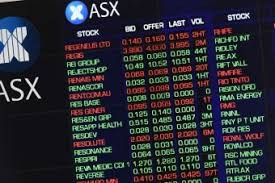Weekly market update - 10th of September 2018
Written and accurate as at: Sep 10, 2018 Current Stats & Facts

The Australian sharemarket fell -2.6% last week as uncertainty over Sino-American trade and pressure on some emerging markets weighed on market sentiment.
The market has now retraced -3.4% from its high of late August and has given back the gains made over the past two months. At this point most seem to expect that President Trump will announce tariffs; the market’s reaction will depend on their scale. While a large raft of measures would probably prompt market volatility, we believe it is possible that the Chinese authorities are likely to respond with offsetting measures to stimulate economic growth.
A stronger US dollar, driven in part by risk aversion over possible trade sanctions, continues to cause problems for emerging markets with high debt and current account deficits. Argentina has most recently fallen into the cross-hairs of market concern as its economy contracted 6.7% year-on-year in June. In this vein, Friday’s strong wage and jobs data from the US underpins an expectation of continued USD strength.
There are two schools of thought on the outlook for US wage growth. The first is that the recent strength in wages is a relatively short-term phenomenon and that structural factors such as technology and consolidation will keep wage growth low. The second is that wage pressure takes some time to build but that when it finally reached critical mass, it will surprise on the upside. Friday’s data seems to support the latter view. There is plenty of anecdotal and survey evidence painting a picture of an increasingly tight labour market. For example, it now takes an average of 31 days to fill a job, versus 15 in the GFC and 25 at the top of the last cycle. This tightness – and its implications for growth, inflation and interest rates – suggests we are unlikely to see a bond rally in the near term. US 10 year Treasury yields ticked up last week, although they still remain under 3%.
There was little specific news-flow to drive stocks as we enter the post-reporting season lull. The Chinese government did announce measures to try and control people’s ability to buy products offshore and then re-sell them online domestically. This policy is intended to clamp down on the proliferation of fake products, however it is also an important sales channel for some Australian brands such as Blackmores (BKL, -11.0%) and A2 Milk (A2M, -8.0%) which reacted accordingly. Outside of this, we saw some of the growth stocks which outperformed during reporting season give back some of their gains, including CSL (CSL, -7.3) and the small-cap tech stocks such as Afterpay Touch (APT, -17.3%).
Power company AGL (AGL, -5.5%) also continued to underperform. The seeming demise of the Liberal Party’s energy policy has only added to complexity in the sector. Further investment is needed in areas such as gas to offset the continued closure of coal-fired power stations, however companies are unlikely to commit the capital required unless some politically bipartisan approach can be found which can provide some clarity on future earnings. The National Energy Guarantee (NEG) actually enjoyed a reasonable degree of bipartisan support, notwithstanding some political posturing, and without it the likelihood of a bipartisan approach appears limited. This leaves the power sector vulnerable to continued political and regulatory pressure, prompting further caution.
There was little on the positive side in terms of stocks. Some of the REITs held up well in a defensive market, with Investa Office Fund (IOF, +3.9%), Stockland (SGP, +2.2%) and Mirvac (MGR, +1.2%) managing to eke out some gains. Telstra (TLS) gained +1.0% on confirmation of the deal between TPG Telecom (TPM) and Vodafone. It also revised FY19 guidance as NBN data became available and suggested a material reduction in the scale of expected roll-outs. This is negative in the near term, however is ultimately immaterial as the benefit is only delayed to the following year. Gold miner Northern Star (NST, +17.5%) was a stand-out performer in response to its purchase of the Pogo mine in Alaska.
Sydney Airport (SYD, +1.8%) bounced back after initially selling down in sympathy with Transurban (TCL, -3.6%) after the latter announced it was raising capital to fund its successful bid for majority control of Sydney’s WestConnex tollroad. The TCL purchase is interesting; while the price paid to the NSW government is higher than many expected, it is difficult to assign a 'fair' price given it does not take much in a forecasting error for expected traffic to have a material effect on the project’s value. The deal also involved some concessions which place TCL in a strong strategic position, with control of the toll road network in the Sydney basin.










